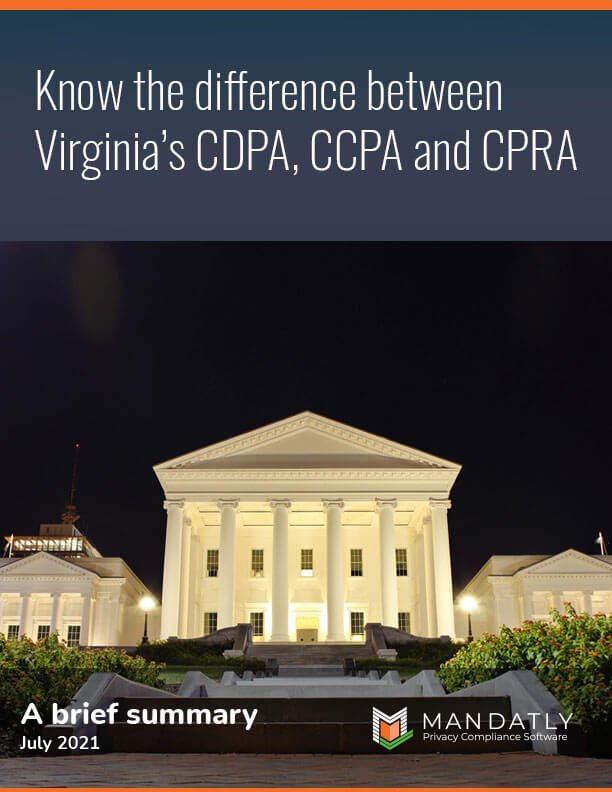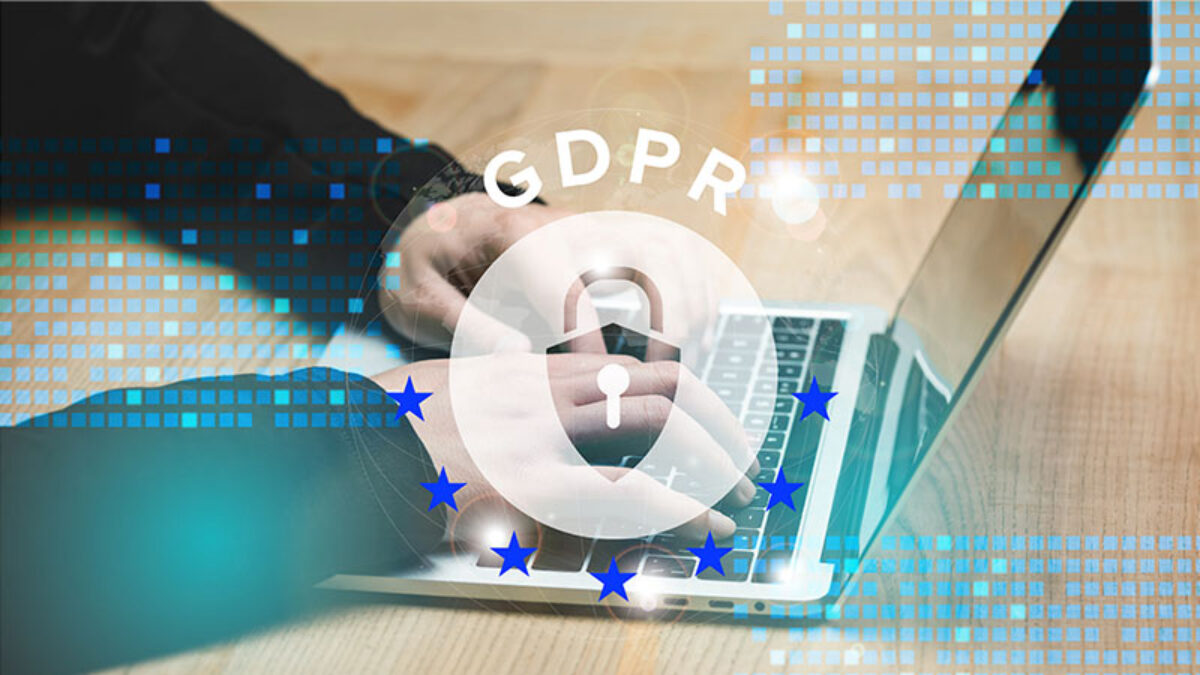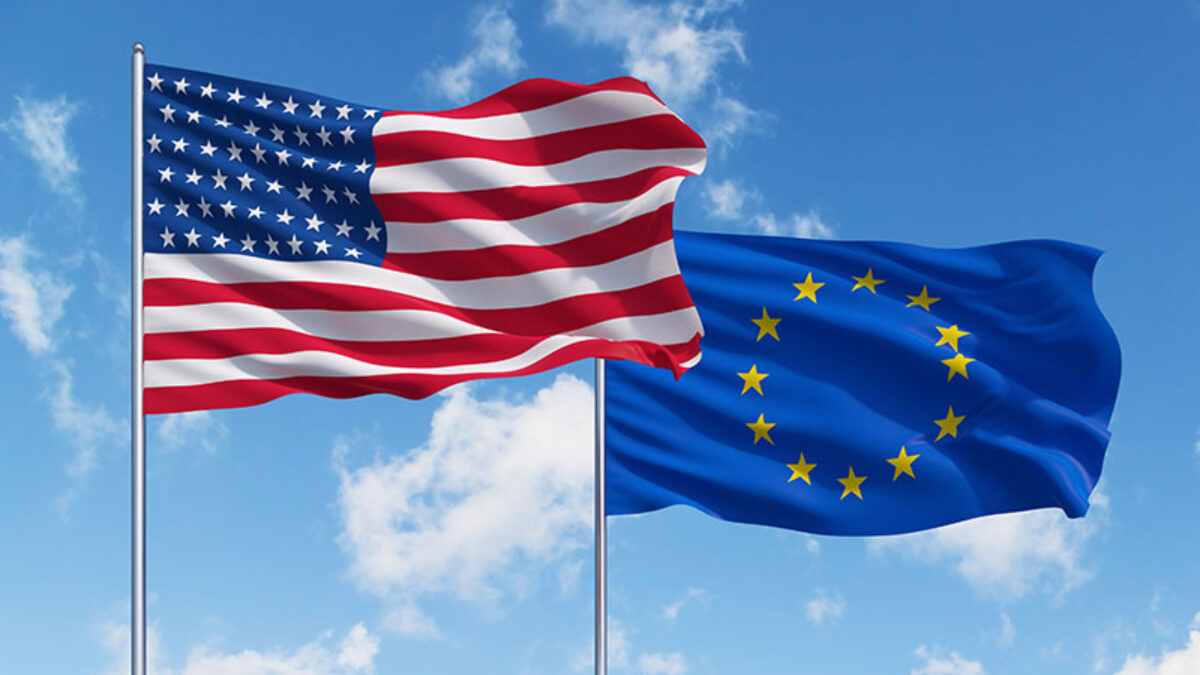Nigeria Data Protection Regulation (NDPR)
What is NDPR Act?
NDPR (Nigeria’s data protection regulation)is the current national law in Nigeria issued in January 2019. NITDA as the Regulatory Authority for Data Protection aims at innovating data protection management in Africa through inclusive regulatory strategies, partnerships, and continuous improvement, all geared towards ensuring NDPR compliance
The objective of Nigeria’s data protection regulation is to safeguard the rights of natural persons to data privacy, foster safe conduct for transactions involving the exchange of Personal Data and to prevent manipulation of Personal Data.

Key highlights of NDPR:
Know the difference between Virginia’s CDPA, CCPA and CPRA?
Download this whitepaper to know more about the key differences between the provisions of Virginia’s new privacy law called CDPA, the California Consumer Privacy Act (CCPA) and the California Privacy Rights Act (CPRA). It provides an overview of each law’s requirements, highlighting their similarities and differences. Although there are some similarities in all the active privacy laws, the framework, and definitions of CDPA carries its unique requirements and guidance.

Data Subject Rights under (NDPR) Nigeria Data Protection Regulation
- Right to be Informed
Any medium through which Personal Data is being collected or processed by business shall display a simple and conspicuous privacy policy that the class of Data Subject being targeted can understand. - Right to Object
A Data Subject shall have the option to:- Object to the processing of Personal Data relating to him which the Data Controller intend to process for the purpose of marketing,
- Be expressly and manifestly offered the mechanism for objection to any form of data processing free of charge.
- Right to Access
The Controller shall take appropriate measures to provide any information relating to processing to the Data Subject in a concise, transparent, intelligible, and easily accessible form, using clear and plain language, and for any information relating to a child. - Right to Deletion
The Data Subject shall have the right to request the Controller to delete Personal Data without delay, and the Controller shall delete Personal Data. - Right to Restriction on Processing
The Data Subject shall have the right to obtain from the Controller restriction of processing where the processing is unlawful or the Personal Data is no longer needed for the purposes of the processing - Right to Rectification
The Controller shall communicate any rectification or erasure of Personal Data or restriction to each recipient to whom the Personal Data have been disclosed. - Right to Data Portability
The Data Subject shall have the right to receive the Personal Data concerning him or her, which he or she has provided to a controller, in a structured, commonly used, and machine-readable format, and have the right to transmit those data to another controller without hindrance from the controller to which the Personal Data have been provided.
If the Controller does not act on the request of the Data Subject, the Controller shall inform the Data Subject without delay and at the latest within one month of receipt of the request of the reasons for not taking action and on the possibility of lodging a complaint with a supervisory authority.
Data Protection Officer
The Data Controller and the Data Processor shall designate a data protection officer in the following circumstances:
- The Data Controller or the Data Processor is a public authority as prescribed and announced by the Committee.
- The activities of the Data Controller or the Data Processor in the collection, use, or disclosure of the Personal Data require a regular monitoring of the Personal Data or the system, by the reason of having a large number of Personal Data as prescribed and announced by the Committee.
- The core activity of the Data Controller or the Data Processor is the collection, use, or disclosure of the Personal Data according to section 26.
How Mandatly helps you achieve Nigeria NDPR compliance?
Mandatly’s NDPR compliance solution goes above and beyond automation and includes comprehensive privacy risk management features that enable you to make effective business decisions and eliminate privacy risks. Our commitment to NDPR compliance ensures your business operates with the highest standards in data protection and privacy management.





